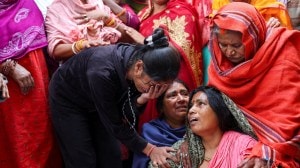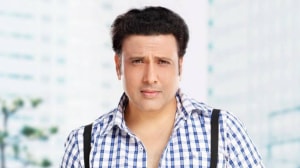Karna’s dilemma, Parshuram’s rage & Urvashi’s love: 5 Ramdhari Singh ‘Dinkar’ poems every Indian should read
For a reader who indulges in revolutionary nationalism, with philosophical perceptions that set a courageous tone, here are the 5 most celebrated and honoured mythological poems by Dinkar, that would stir up the soul of readers from every generation.
 RashtraKavi Ramdhari Singh 'Dinkar.'
(AI Generated image)
RashtraKavi Ramdhari Singh 'Dinkar.'
(AI Generated image)(Written by Anushka Rajvedi)
When passion, motivation and nationalism merged, it gave rise to the ‘RashtraKavi’ (National Poet) of India, Ramdhari Singh ‘Dinkar’. A revolutionary poet, Dinkar’s poems resonated the powerful inner voice of the voiceless. Although he wrote during the British colonial era, his works are as relevant today as they were years ago.
To read Dinkar is to delve through the rugged terrains of identity, ethics, morality, duty, desire, justice and freedom. By reimagining mythological heroes such as Karna, Yudhistra and Parshuram in the modern day, Dinkar took his readers on a journey of revolution that is rooted in tradition, which is not just an instance of literally brilliance but of themes that are relevant through all ages, rooted in emotions.
For a reader who indulges in revolutionary nationalism, with philosophical perceptions that set a courageous tone, here are the 5 most celebrated and honoured mythological poems by Dinkar, that would stir up the soul of readers from every generation.
 (Source: Amazon.in)
(Source: Amazon.in)
Rashmirathi
“जो ना झुका अब तक कभी, जो ना कभी डरा है;
रण में, वह क्या झुकेगा, जो झुक गया क़लम से।”
(He who never bowed, never feared in war—will he bow to the pen?)
Honoured with the Jnanpith Award in 1972, Dinkar, through the lens of the ‘tragic hero’ Karna, recites the epic of the Mahabharata in a powerfully crafted conflict between the inner voice and society. While most view Karna in a negative light for supporting Duryodhana and the Kauravas, Dinkar portrays him as not just a character, but a symbol of dignity. Conflicted between the ideals of his life and his loyalty to Duryodhana, Dinkar depicts how individuals are often torn between being idealistic and practical. Rashmirathi is wrapped in themes such as caste, identity, morality, justice, loyalty and meritocracy. Known as his ‘crowning literary achievement’, Dinkar’s Rashmirathi is filled with intensity and is rich in imagery. Through the internal conflict of Karna, Dinkar urges his readers to become that power that resonates with the voice of an underdog.
 (Source: Amazon.in)
(Source: Amazon.in)
Kurukshetra
“शांति नहीं तब तक जब तक, सुख-भाग न नर का सम हो।”
(There can be no peace until all humans share joy equally.)
Churned between the choices of right and wrong, Dinkar reflects on the moral dilemma through a philosophical dialogue between Yudhistra and Krishna after the Mahabharata war. Looking at the bloodshed after the war, Yudhistira was disenchanted. Dinkar, through the dialogues of Krishna, explores the need and the outcome of a war. Kurukshetra highlights the ethical dilemma and the moral conflict that an individual gets stuck in as they live in a world torn apart by war and shrouded in injustice. Dinkar highlights the complexity of morality and values, prompting his readers to consider whether peace and justice can ever prevail in this world without violence.
 (Source: Amazon.in)
(Source: Amazon.in)
Parshuram ki Pratiksha
“नया दौर है, नया दौर है, नहीं माफ़ अब अपराध पुराना।”
(It is a new age—old sins shall no longer be forgiven.)
Set in a fierce revolutionary tone, Parshuram ki Pratiksha is a perfect example of mythology blended with morality. Mythological character Parshuram is said to be an avatar of the Hindu God Vishnu, who is a warrior-sage who is known for his courage and morality. A metaphor to motivate change in the modern world, Dinkar imagines the warrior-sage Parshuram awaiting the arrival of revolution. In a world where morality decomposes as time passes by, Dinkar ignites a revolutionary fire and urges the new generation to integrate and fight against injustice and corruption.
 (Source: Amazon.in)
(Source: Amazon.in)
Urvashi
“प्रेम केवल भाव नहीं, है शक्ति, जो नर को बनाती देव।”
(Love is not just emotion—it is the power that makes man divine.)
Honoured with the highest literary honour, the Jnanpith Award in 1972, Dinkar’s Urvashi is a romantic eternal conflict between spiritual and physical love. When the elegance of myth delves into the depths of human emotions, it explores the true beauty of love that goes beyond the boundaries of physical and material love. The love story of a celestial nymph, Urvashi and the king Pururava is elegantly muffled in a lyrical and aesthetic mastery by Dinkar that reverberates the true essence of love in modern times.
 (Source: Amazon.in)
(Source: Amazon.in)
Renuka
“बेटे के हाथों मारी गयी माँ, फिर भी उठी दिव्य बना।”
(The mother slain by her son rose again, more divine than ever.)
‘Sacrifice’, ‘emotions’ and ‘duty’ are terms that even today are often used to refer to one emotion- ‘the love of a mother’. Dinkar, through this poem, talks about the maternal love of Renuka, who was killed by her son. Dinkar addresses the conflicts of obligations of duty and emotions, morality and authority and discipline and sacrifice, through the mythological story of Renuka and Parshuram. The warrior-sage Parshuram beheaded his mother Renuka on the command of his father. Dinkar binds his readers in the emotional journey that evokes the sacrifice of a mother who is often entangled in the predicament of ‘Dharma’, ‘Discipline’ and ‘sacrifice.’
(The writer is an intern with The Indian Express.)


- 01
- 02
- 03
- 04
- 05





























